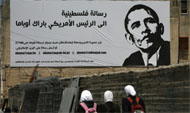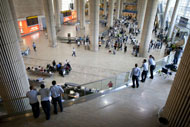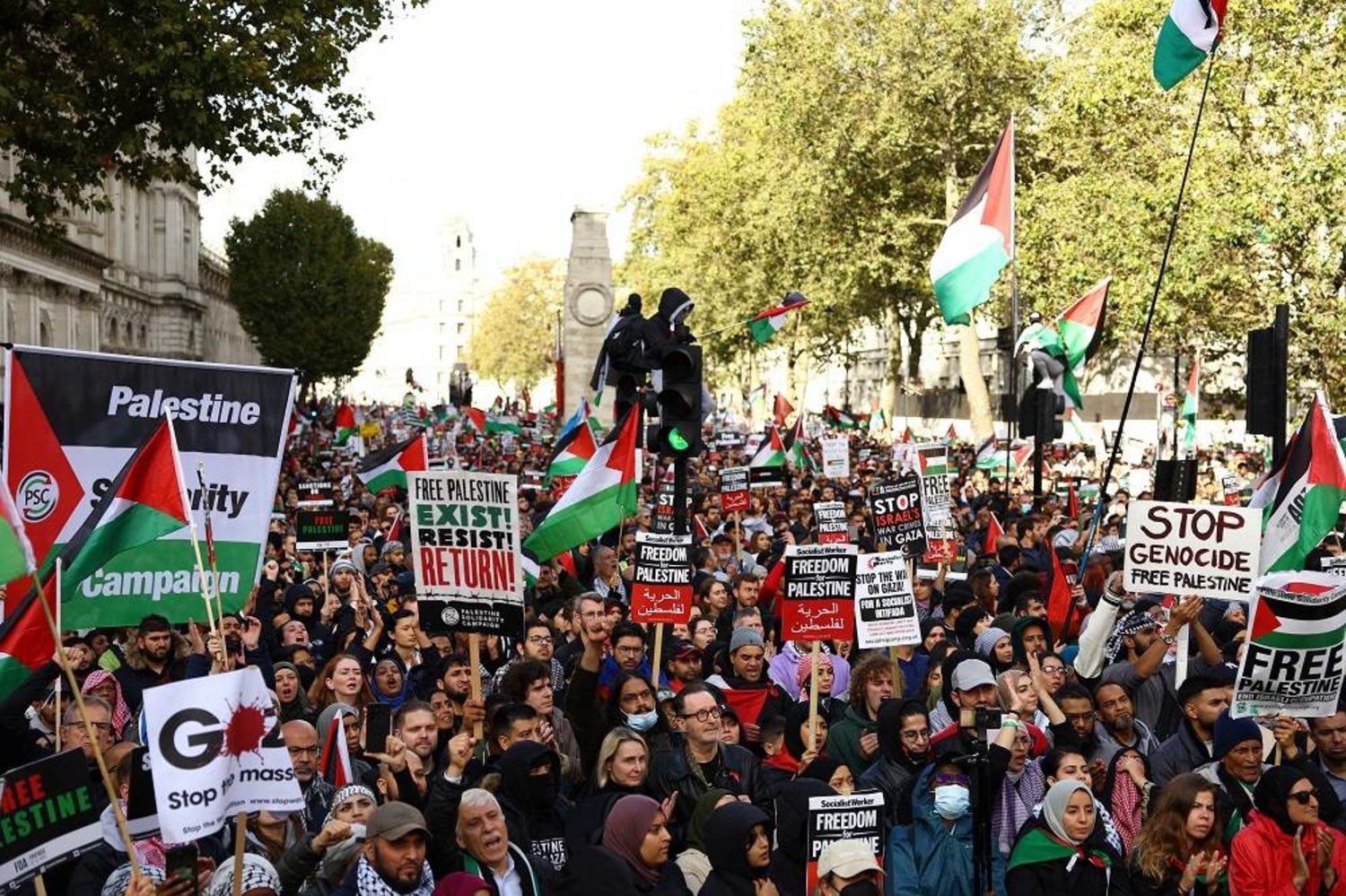
Many of us were disheartened by the outcome of the United States' mid-term elections and for good reason. It has been decades since the Republicans have made such a sweeping victory, taking over the House of Representatives and sizably increasing their number in the Senate. This set off alarm bells, not only for Democrats, but for plenty of others the world over. The Palestinians, who always watch US elections closely, did so this time around too, not because they are so concerned with internal US affairs but because they always seem to think that US elections, kind of like Israeli elections, will have a direct impact on the peace process.
Barring rants such as those of PLO Secretary General Yasser Abed Rabbo, who accused Israel of "interfering" in the mid-term elections, almost every other Palestinian was only mildly worried that the Republican "take-over" of the House would severely damage the negotiating process.
That is because, if no one has noticed, it is already severely damaged. "It seems that the right-wing Israeli government colluded with powers inside the United States for political maneuvers and games,” Abed Rabbo opined. “This reveals once again that there is an Israeli government that wants to use every means to cast off the peace process.”
What Mr. Abed Rabbo may not realize, conspiracy theories aside, is that whether the US government is made up of liberal Democrats or conservative Republicans (including hard-line Tea Partiers), the Palestinian-Israeli conflict has yet to be solved at its hands. While it may be true that having a divided government with more pro-Israel Republicans in the House and Senate could mean a lighter grip on funding towards Israel and an even lighter one on demands on it, US President Obama has proven that even the best-intentioned President can get pulled into the murky waters of Middle East politics.
If anything, the Palestinians are disappointed in the way things have gone so far with the Obama Administration. Coming into office, Obama was viewed as a sympathetic, intelligent and decisive leader who understands the precarious position of an underdog. To be fair, it seems as if Obama gave it his best shot in the beginning by appointing George Mitchell almost immediately to the post of US Envoy to the region and pushing Israel a bit harder than usual on stymieing settlement construction. Fast forward to today, the love affair is all but over. Most recently, President Obama, in his push for Israel to extend its moratorium on settlement construction, has reportedly urged its leaders [namely Israeli Prime Minister Benjamin Netanyahu] to accept a more malleable proposal. Should Israel agree to extend its original 10-month freeze just for two more months, the US would guarantee to one, veto any "anti-Israel" resolutions in the United Nations, and two back one of Israel's most contentious demands of retaining a military presence in the Jordan Valley in any final agreement with the Palestinians.
"We don't want American intervention, thanks very much," Nabil Shaath commented in reference to the so-called proposal, calling Obama's pressure on Israel a "game of seduction".
"This game of seduction only acts as an incentive to Netanyahu to be even more assertive and ask for more."
Now remember, this is not predicted new House speaker John Boehner, a staunch pro-Israel supporter, but President Obama. Such statements are proof that US governments have all fallen into the same trap regardless of intentions. The bottom line is always the same: Israel's security trumps all other considerations because that is the premise Israel imposes on any dialogue about a framework for a peace agreement and the US, even if it secretly knows this to be a bogus argument, takes the bait.
This has been the case for decades, ever since the US took on the role of broker in the peace process. Even under Bill Clinton whose term in office saw the signing of the Oslo Accords and the nearly signed Camp David II, the paradigms were more or less the same. A Palestinian state could be established but only under certain conditions, conditions to which the Palestinians could never agree such as the exclusion of Jerusalem.
This is not to say that an open-minded Democrat for President along with a Democrat-leading House and Senate are not a preference to the Palestinian leadership. As far as foreign policy is concerned, no doubt there will be more sable rattling against Hamas and even the Palestinian Authority within the corridors of American governance now that so many pro-Israel politicians have taken office. And there will be more pressure on the President to "back off" of Israel and focus more on Iran. There may even be more restrictions on funding to the PA and an easier flow to Israel. It is hard to say what changes could take place in the next two years before presidential elections are held.
Unfortunately however, for the Palestinian cause it will not make that much difference who takes the House. In the end, the Palestinians are faced with an Israel that goes but so much in its "peace efforts" before casting the entire blame on the Palestinians. Ideally, the United States could play the crucial role of imposing change within Israel if by no other means than tightening the flow of funds it sends each year. Nothing talks to Israel better than plain old greenbacks.
This will not happen, of course. The US-Israel relationship is an "unbreakable bond" as Obama and so many before him have made clear. Hence, the Palestinians may need to make good on some of the alternatives they proposed should the negotiating process continue to falter. If the US can't deliver, the Palestinians may have no other choice than to move on.
Joharah Baker is a Writer for the Media and Information Department at the Palestinian Initiative for the Promotion of Global Dialogue and Democracy (MIFTAH). She can be contacted at mid@miftah.org.









